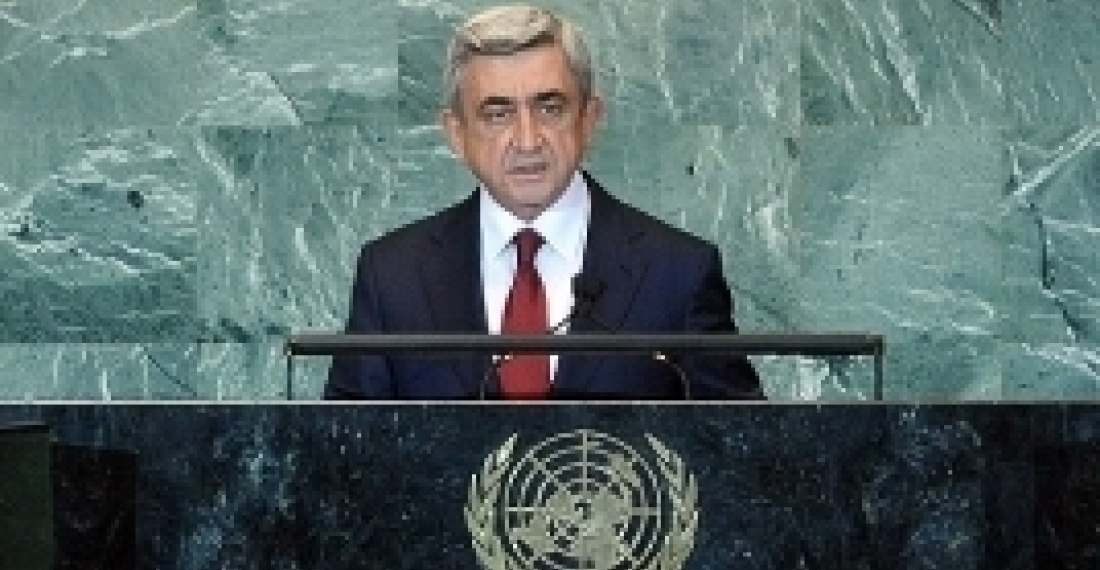We highly appreciate the mediation efforts of global and regional structures and organizations in various parts of the world in preserving peace and security and in conflict settlement through peaceful negotiations, Serzh Sargsyan, the President of the Republic of Armenia, said during his speech in the 66th session of the General Assembly.
"It is particularly worth mentioning the engagement of regional organizations that have built-up an enormous experience in mediation and have an in-depth knowledge of the political, cultural, and military realities on the ground. The success of mediation hinges, among other things, upon the articulation of a clearly-defined mandate. A case in point for us is the mission of the OSCE Minsk Group in the settlement of the Nagorno-Karabakh conflict.
Another key factor worth highlighting here is the mediators' role in preventing conflict escalation and the resumption of hostilities. This aspect of mediation is sometimes overlooked, yet it is of no less importance to international peace and stability than finding a solution to a contentious matter.
Three years ago, when I had the honor to speak from this rostrum, I stated that the time has come for seriously considering the exercise of the people's right to self- determination in the 21st century. We are today witnessing new cases of the exercise of this inalienable right," Sargsyan said.
In this context, he congratulated the newly-elected 193rd member of the United Nations Organization, the Republic of South Sudan.
"Its path to having a place in this august hall has been long and difficult, but the people of South Sudan, through the free expression of will, exercised their right to live sovereignly and independently, thus crossing the path that many of the UN member states present here today have crossed.
The people of Nagorno-Karabakh made the same choice two decades ago by exercising their right to self- determination, by withstanding the war unleashed by Azerbaijan, and surviving bloodshed to earn their right to live in freedom.
The Nagorno-Karabakh conflict settlement talks are continuing with the mediation of the OSCE Minsk Group co- chairs. We are grateful to the co-chair countries and their leaders for their mediation efforts. However, the mediators cannot reach an agreement in place of the negotiating parties.
Azerbaijan's utter unwillingness to reach an agreement and its "everything or war" position have stalled progress in the peace talks. Despite the expectations and the high-level advice from the international community, Azerbaijan took yet another step back during the last meeting in Kazan by rejecting the previously elaborated arrangement and trying, in fact, to break down the negotiation process," the Armenian President said.







